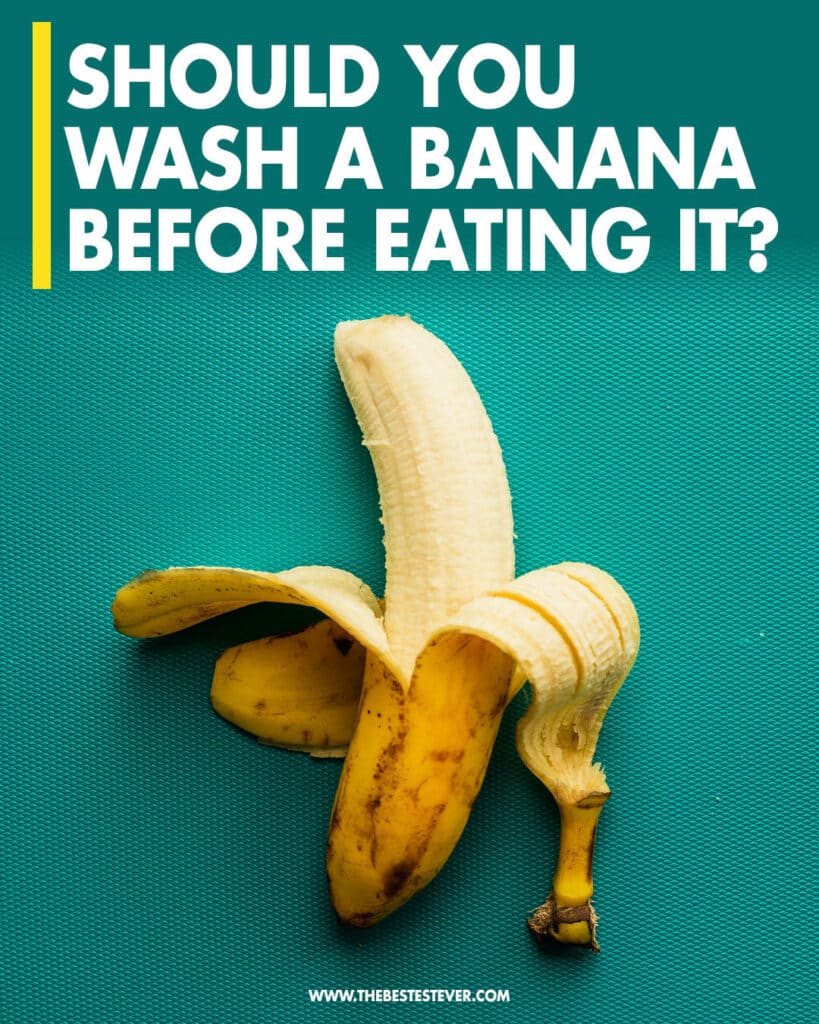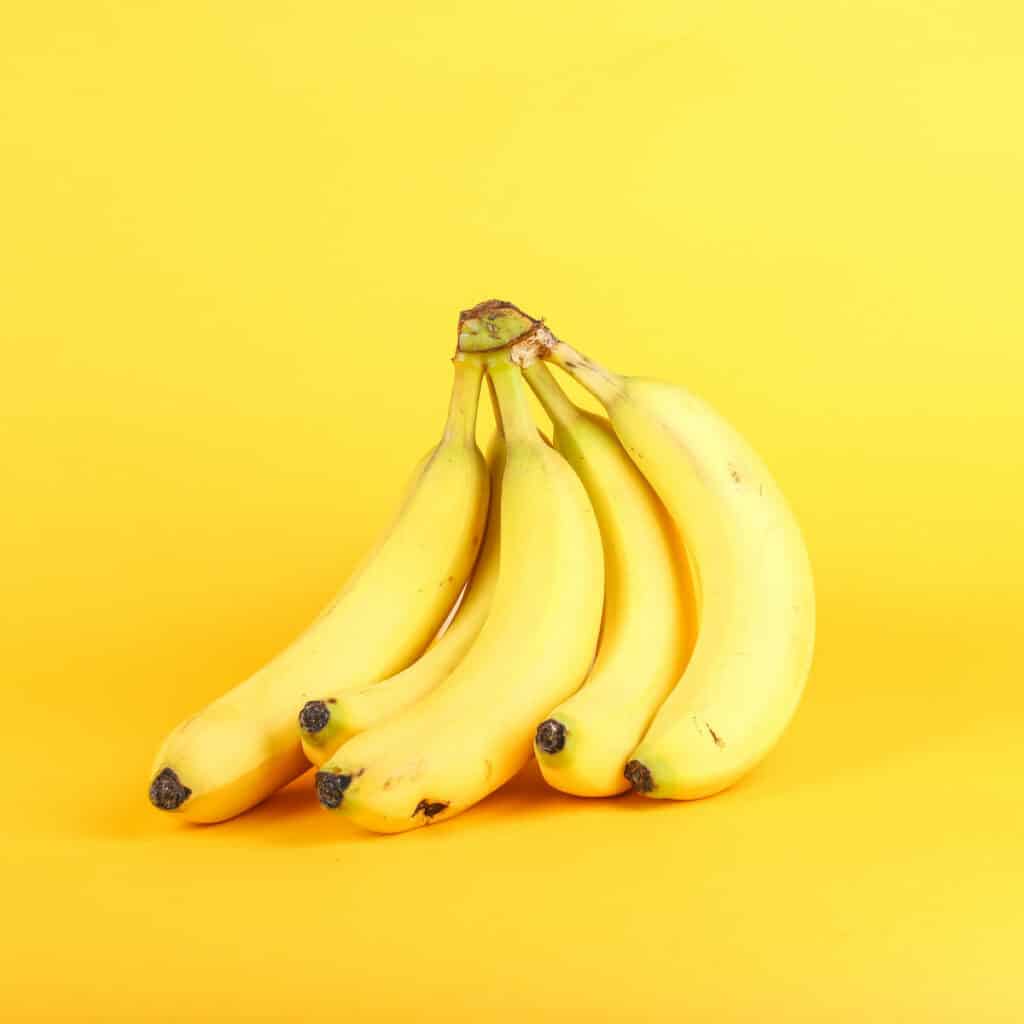I know it is a weird question…but I’m sure you want to know should you wash bananas before eating them? I mean, who really washes them right? We just peel them and shove them in our mouth.
Well, turns out that you should be washing them before eating them.
Today, we’ll explore the reasons why this is the case.
Why You Should Wash Bananas Before Peeling Them?

It makes sense that we wash peaches, apples and tons of other fruits and vegetables, but bananas!
I know, I was shocked too! But there are actually a few good reasons why you should always wash them before eating.
Let’s take a look at them below.
Food Safety
The main reason why you should start washing your bananas before you start eating them is quite simple, it is for food safety. As weird and out-there it sounds, it kinda makes sense.
According to Food and Nutrition, the reason why you should wash fruit is that dirt and bacteria can be transferred from the outside of the fruit to the inside. You wash fruit for this reason, bananas should be no different.
So you might say, “Well, I’m just peeling the banana, the bacteria aren’t transferred that way.” Well, you would be wrong! That same dirt and bacteria could be transferred in the peeling process to the fruit.
While it seems highly unlikely, it is best to be safe than sorry. It only takes a couple seconds to wash the banana.
Washing Helps Remove Pesticides
Another good reason to wash your banana is to eliminate any pesticides that may be on the surface. While most of the time, bananas are washed before they are shipped, there is a possibility that some pesticides could still be left on the surface.
If you do not wash the fruit, you run the risk of some of these chemicals being transferred to the inside of the banana, especially if you are cutting them.
Washing Can Remove Wax
Did you know that some bananas are actually coated in wax? This wax is used to help extend the shelf life of the fruit and to protect it from bruising. However, this wax can also be a breeding ground for bacteria.
So, if you want to make sure that your banana is as clean as possible, you’ll need to give it a good wash to remove the wax.
How to Wash a Banana Properly? (3 Best Methods to Use)

Washing and cleaning a banana is quite simple and there are different methods that you can use to ensure the fruit is rinsed properly.
Wash it with Water
The first method is to simply use water. This will take only a few seconds and is the most common way you will use to rinse a banana.
Steps:
- Take a banana from the bunch and run it under cold tap water.
- Give it a gentle scrub with your fingers to make sure that all the wax, dirt and any contaminants are removed.
- Once finished, dry off with a clean kitchen or paper towel.
- Once dried, peel and enjoy.
Use Produce Washes
One popular method that you can use to clean your bananas is with produce washes. These washes are designed specifically for fruits and vegetables and can help to remove any leftover pesticides and dirt that may be on the surface.
To use a produce wash, simply follow the instructions that’s on the bottle. In most cases, you will add a small amount of the wash to a bowl of water and then soak the fruit for a few minutes. After soaking, rinse the fruit under cold water and enjoy.
Use Vinegar
If you don’t have a produce wash on hand, you can also use vinegar to clean your bananas. Vinegar is a natural disinfectant and can help to remove any dirt, wax or pesticides that may be on the surface of the fruit.
To use vinegar to clean your bananas, simply add 1-part vinegar to 3 parts water in a bowl. Soak the bananas in the mixture for a few minutes and then rinse them under cold water.
Note: You should not let the banana sit in water or the washes for too long as this could cause the fruit to absorb too much water and become mushy. Also ensure it is dried properly, if you will not be eating it right away. Moisture is a breeding ground for bacteria.
Wrapping it up
While the thought of washing a banana might seem a bit on the extreme side, there is a possibility that dirt and bacteria that causes food-borne illnesses could be transferred as you peel or cut the fruit.
Washing fruit is a food safety tip that is necessary, especially for people in the vulnerable population (babies, pregnant women, elderly and people with pre-existing conditions).